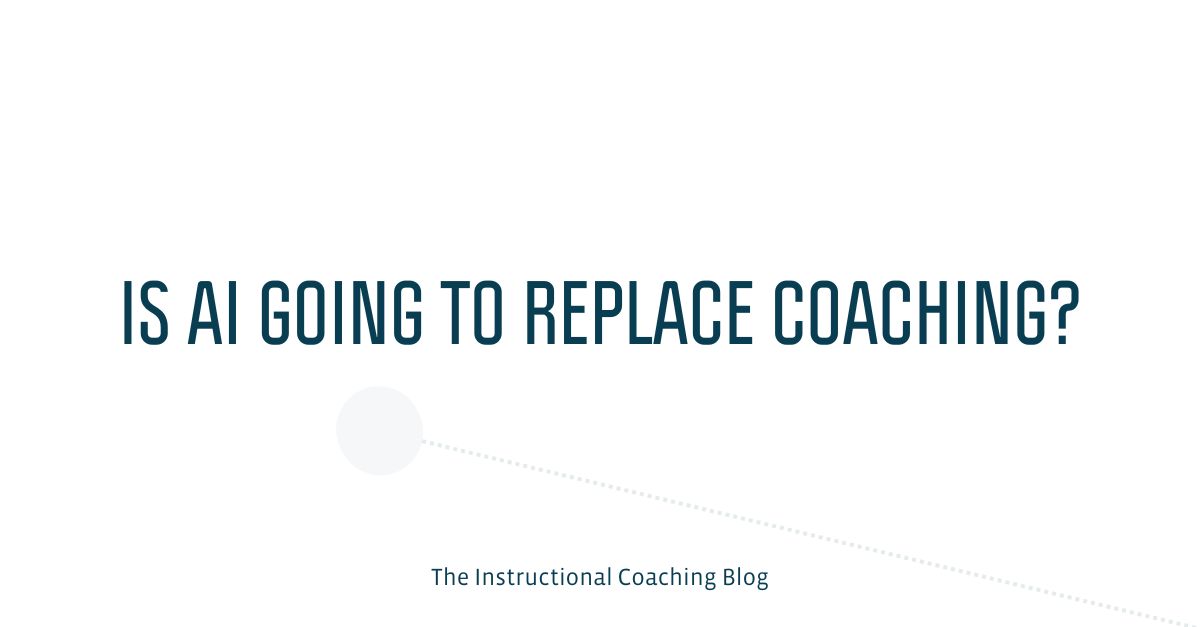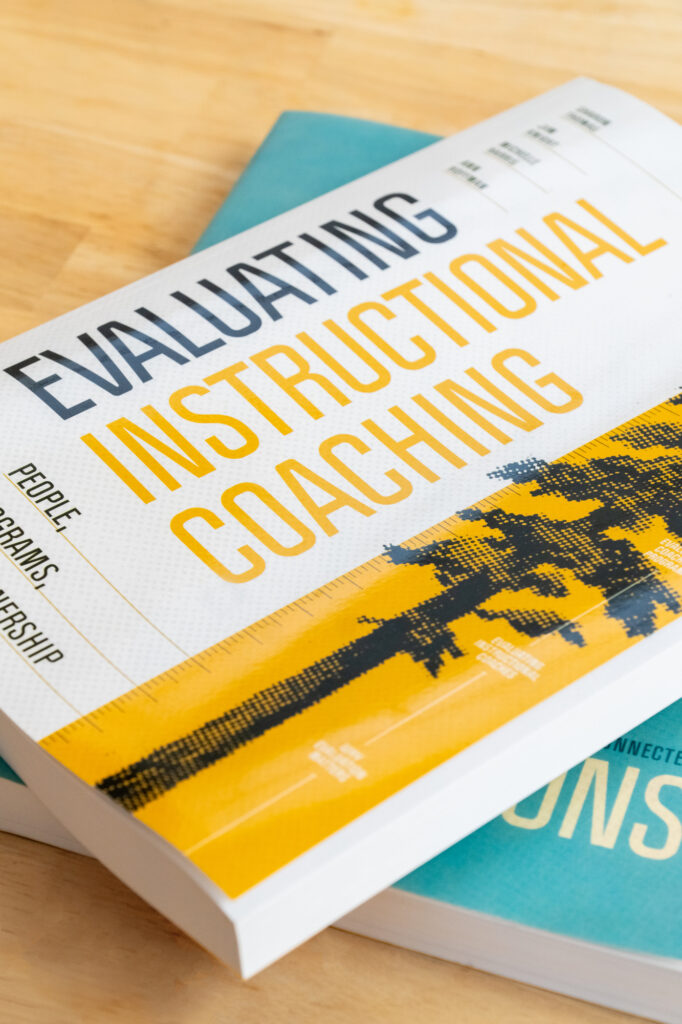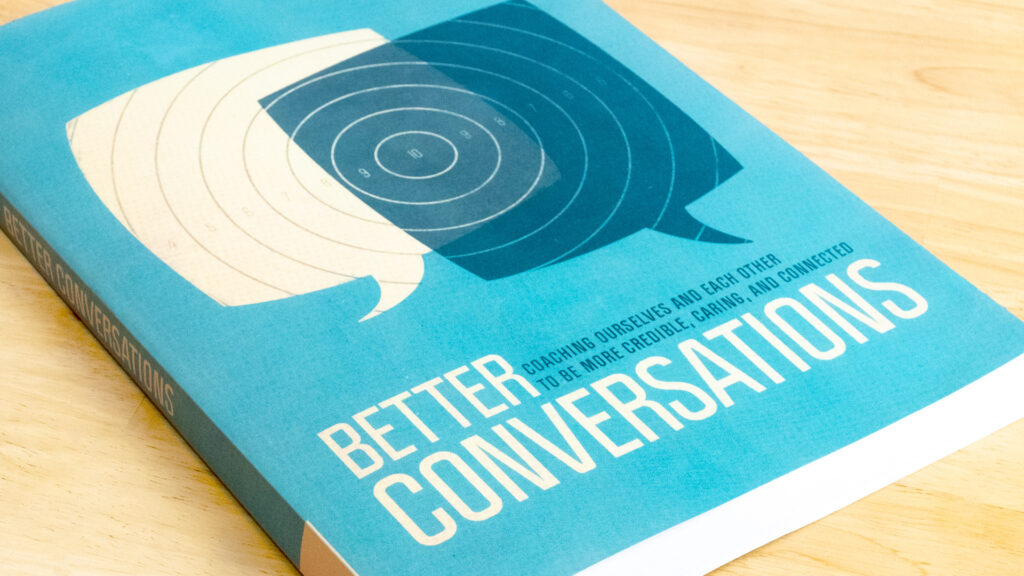I hear the question all the time: Will AI replace coaching?
Now, I’ve studied instructional coaching for 25 years, so I may be a little biased. But I also think those years have given me a good sense of what AI can and can’t do when it comes to coaching.
Here’s what I think, in a nutshell:
AI won’t replace coaches, but coaches who use AI might replace coaches who don’t.
I’ve spent quite a bit of time exploring what AI can do, and reading what others are saying. And I’ve gotten pretty clear on its strengths and limitations.
Effective coaches are skilled in at least four key areas. First, they show up in a way that makes people want to work with them—we call this the partnership approach. Second, they have coaching skills—especially listening and questioning—that help others think more deeply. Third, they use a coaching cycle that helps them move with agility through different stages of learning, all the way to setting and achieving meaningful goals. And finally, they understand the difference between weak strategies and strategies that really make an impact.
AI doesn’t have most of that.
It’s not good at listening. It often cuts people off and moves forward without really taking in what was said. It’s guided by rules and algorithms, not by the principles of human connection that matter in coaching. So far, I don’t see artificial empathy replacing real empathy. Also, AI doesn’t use a coaching cycle effectively—it can’t adapt in the sophisticated way that a coach can. And while it does have access to a lot of strategic knowledge, some of it is made up, what AI experts call hallucinations, and sometimes it’s just wrong.
Here’s an example. There’s a well-known joke about a drunk who’s looking for his keys under a streetlight. A police officer pulls up and asks him, “Did you lose your keys here?” and the drunk says, “No, I lost them over there, but the light’s better here.” That’s how AI can lead us off track—we might focus on something just because AI surfaced it, even though it’s not the most important thing.
So if coaches want to succeed, I think they need to understand how AI can be used as a tool for coaching.
When coaches use AI well, they’ll likely be more effective. But it has to be used well, and it has to be used by a coach. AI on its own is a technical, quick fix—and coaching is complex work that doesn’t respond well to quick fixes.
AI is a power tool for learning. And just like you can cut more trees with a chainsaw than an axe, coaches who use AI may end up doubling, tripling, or even quadrupling their impact. But like any power tool, you have to know how to use it, or damage will be done.
That’s why I’ll be sharing short videos over the next few weeks about what I’m learning with AI and coaching. And if you’re interested in going deeper, I’m offering an online workshop starting May 20 on artificial intelligence and instructional coaching. Learn more here or email us at hello@instructionalcoaching.com
Author
Jim Knight, with help from his AI assistant, Maple



























